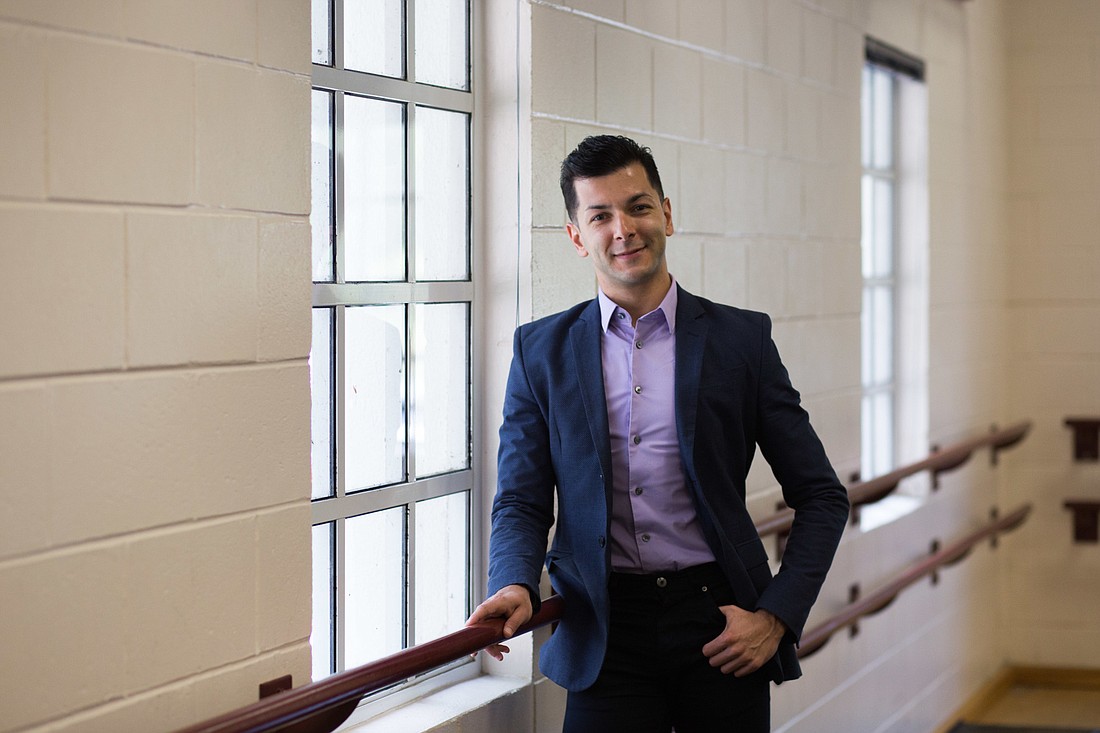- April 24, 2024
-
-
Loading

Loading

The 31-year-old Sarasota Ballet principal dancer from a small village outside São Paulo, Brazil just got his green card. But he felt like an American long before gaining permanent residency.
Interviewed by Niki Kottman
"I first arrived in the United States in August of 2005 at the age of 18. I had been offered a job with Tulsa Ballet in Oklahoma, and it was my first job. I never saw myself actually coming to the U.S. I ended up going to an audition in Prague not knowing that the audition was for Tulsa Ballet. I just thought it was a random company in Czech Republic but then I was offered the job and realized 'wait — where is Tulsa?' "
"For some reason as a kid I just wanted to be different so I told myself that’s where everyone is going (the U.S.), so that’s not where I’m going to go, I’m going to go to Europe.''
"I’m a person that adapts really easy to anything. For example (at 16 when he started ballet school in Mannheim, Germany) I got to my dorm in Germany at 11 at night, didn’t know anyone, didn’t know the language and felt at home. So as soon as I got to Tulsa, in my head, America was home.''
"The company put me with an American couple until I found a place to live and we ended up getting really close.They are pretty much my American parents now and they come to Sarasota for every show. Not everybody gets that, so I cannot complain. It was almost an adoption at first sight.''
"Life is just so much easier here (in the U.S.). It’s hard for other people to understand if they haven’t lived abroad. And of course life in Europe is also pretty easy but in Brazil, not so much."
"(Brazilian) people work so hard and have no money and things are just so expensive. And things don’t come that easily to you, even simple things like Internet and cell phones and things in the supermarket. Violence is so big down there. Here, it’s not a big deal if I forget to lock the door. There, if I’m walking down the street I’m thinking I’m going to get shot in the face. That feeling of being safe was definitely something that I enjoyed and still do (here).''
"I end up traveling home often to visit family, of course, and after so many years here, not having to apply for a visa every time I leave the country just makes things so much easier. It can be quite stressful when you don’t have a green card."
"A few years ago, I already felt like I was an American, so I haven’t felt like a Brazilian in a few years. Americans don’t feel like I’m an American, but Brazilians also don’t feel like I’m a Brazilian. I haven’t lived there in forever. This is home for me, this has been home for me. When I visit (Brazil), I am a foreigner. I’m a fish out of water. I really feel like I don’t belong there anymore."
"Actually in one year, it’ll be 16 years that I’ve lived here and 16 years that I lived in Brazil, so I’ve almost been gone as long as I lived there. English is pretty much my first language and I have to actually think before speaking Portuguese and put the words together. With (Brazilian) friends they’re like 'why are you speaking like that? What is this accent?' They say I speak Portuguese with an American accent.''
"If anything ever happened, I don’t know what I would do if I had to go back to Brazil and live there. I do not see myself moving back. And the green card helps with that.''
"I feel like I know more about American values than Brazilian values. I was so young when I left and it wasn’t like I grew up learning about the world — it was a small-town life. Here you have the Democratic and the Republican parties, but in Brazil you have like 30 different parties, so you don’t grow up learning it’s either black or white, left or right. We don’t grow up being put in a category, like if my family is that way, I’m going to be that way. We grow up very open minded."
"I came (here) already with a job and I arrived at a couple’s house and they embraced me as if I was their son so things just happened so easily. Of course I worked hard, but I know it’s so much harder for other people (immigrants), people coming in search of the American dream. They’re real fighters."
"It does feel like that freedom of doing whatever I want exists, but I’m not sure if that’s just the American way or just because I’m alone and not with my parents. At 16, I had to become an adult and make my own decisions and pay my own bills and do my own shopping, but that freedom of doing whatever I want whenever I want, I love that.''